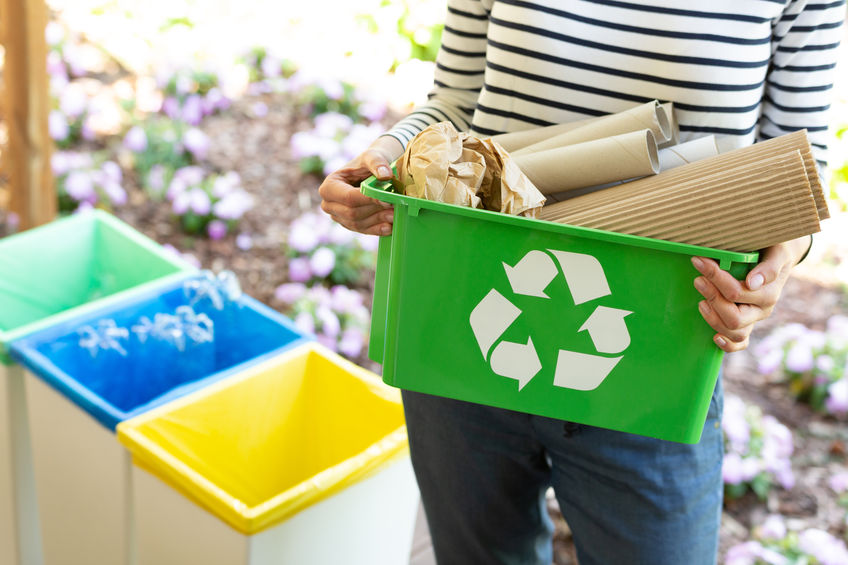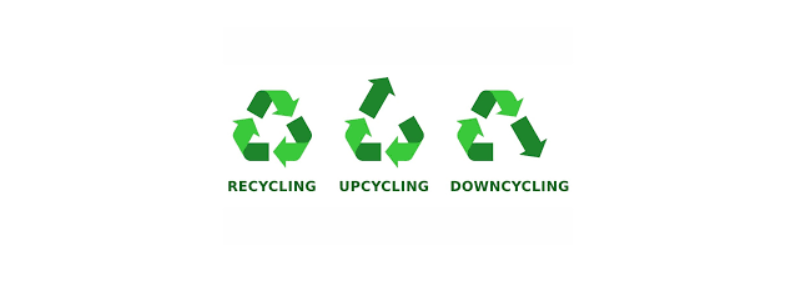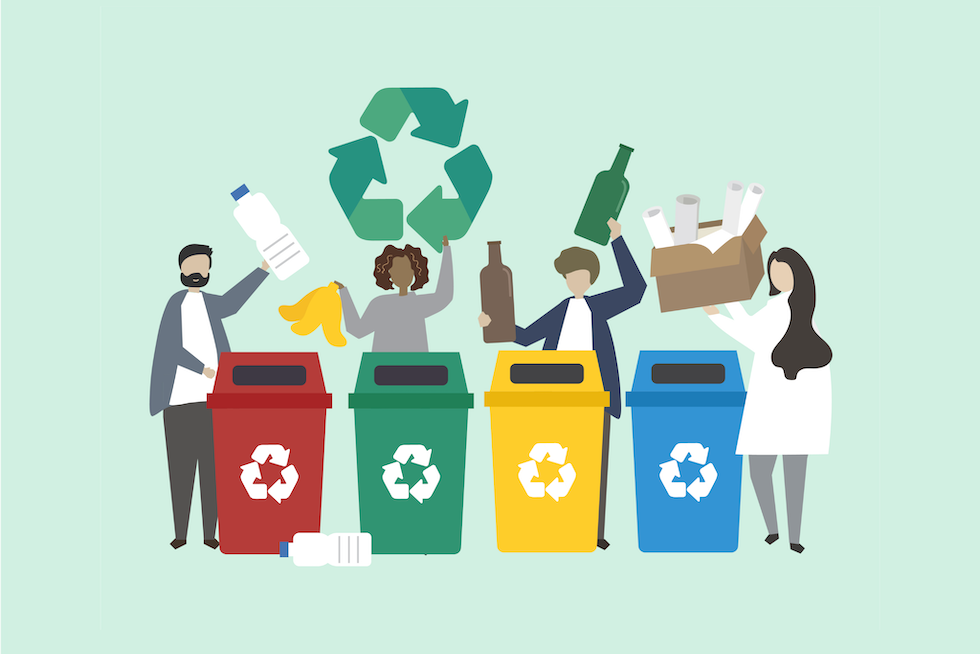Tips For Finding Free Recyclable Materials
Are you on a mission to go green but struggling with the cost of materials? You’re not alone. Many eco-enthusiasts are searching for recyclable materials without breaking the bank.
It’s a common challenge, especially when you’re passionate about crafting and DIY projects yet mindful of your wallet and the environment.
Here’s an uplifting fact: Vast amounts of free, recyclable materials are just waiting to be discovered and transformed into something amazing. This article is your treasure map to finding those hidden gems! We’ll guide you through recycling drop-off services, uncover places where free DIY treasures lie, and share tips for making your eco-friendly projects affordable.
Dive in as we unravel secrets that will make Mother Earth and your pocketbook smile.
Keep reading; adventure awaits!
Key Takeaways
- Explore local recycling drop-off services and utilize their free recyclable materials, including paper, plastic, glass, metal, and electronics.
- Seek out free DIY treasures like pallets, old furniture, or construction site scraps to repurpose for eco-friendly projects while saving money.
- Utilize resources such as Facebook Marketplace, thrift stores, and reuse centers to find affordable or even free recycled materials for your DIY projects.
- Keep costs low by buying in bulk when possible, reusing leftover materials from previous projects, and investing in essential equipment that will last long term.
Recycling Drop-off Services

Many cities have convenient drop-off locations for recycling materials such as paper, plastic, glass, and metal. It’s important to follow these locations’ recycling guidelines to ensure that the materials are properly sorted and processed.
Utilizing these services allows you to easily find free, recyclable materials in your community while reducing waste sent to landfills.
Locations in various cities
Recycling materials is a great way to save money and help the planet. Various cities have drop-off services that let you recycle for free.
- James R. Welch Recycling Center: This center is always ready to take your recyclable items without any cost. It’s a self-service spot, so come prepared to sort your stuff.
- City of Naperville’s Recycling Drop-Off Center: You’re in luck if you live in or near Naperville. They welcome many different items and even scrap metal at no charge.
- MassDEP Beyond the Bin Directory: Not sure where to go? This helpful tool points you to nearby places that accept recyclables.
Materials accepted at drop-off locations
Finding the right recycling drop-off spot in your city is the first step. Next, you’ll want to know what stuff they take. Most places have a list of items they accept. Here’s what you can often drop off for free:
- Paper products – These include newspapers, magazines, and office paper.
- Cardboard – Think boxes from your online shopping sprees or cereal boxes.
- Glass – Jars and bottles usually go here, but some spots may not take them.
- Metal cans – Rinse those soda or soup cans before bringing them in.
- Plastic containers – Bottles, jugs, and tubs often cut.
- Batteries – Car batteries and sometimes small household ones get taken too.
- Electronics – Phones, computers, and TVs might be accepted at certain locations.
- Appliances – Places might take items like fridges or ovens if they’re not too old.
- Clean out your recyclables before dropping them off – no food leftovers!
- Sort your items if the place asks; it’s a big help to them.
- Check labels on plastics – some numbers can’t be recycled everywhere.
Recycling guidelines and tips

Understanding what materials are accepted at drop-off locations is just one piece of the recycling puzzle. Knowing how to recycle them correctly is equally important. Here are some tips and guidelines to make sure you’re recycling the right way:
- Check with your local recycling center for specific rules. Each place can have its own set of guidelines.
- Use Recycling Simplified by Republic Services as a resource. They offer helpful advice on recycling.
- Flatten cardboard boxes before dropping them off. This saves space in recycling bins.
- Rinse out bottles, jars, and cans. Food and liquid can spoil other recyclables.
- Don’t bag recyclables in plastic bags unless your center says it’s okay. Plastic bags often aren’t recyclable through typical programs.
- Take lids off containers. Some centers ask for this so they can process materials better.
- Look at labels on recycling containers. They tell you what goes where.
- Visit the EPA’s website for answers to common questions about what can be recycled and how.
- Learn from Sustainable Stanford’s campus-specific guidelines if you’re nearby or want ideas for dorms or apartments.
- Explore Waste Management’s resources for posters and guides that teach about proper recycling practices.
- Break down items made of different materials, like removing metal parts from wood furniture before disposing of each part correctly.
Pallets
Pallets are versatile resources for DIY projects. They can be free at places like tractor supply stores and retail outlets. Once you have a pallet, it can be broken down to provide wood for various woodworking projects.
If you’re into upcycling and repurposing, pallets are an excellent resource that can help save money on materials.
Furthermore, many businesses often give away used pallets because they prefer not to pay for their disposal. This presents a perfect opportunity to acquire them at no cost and use the wood well.
With just a little effort in sourcing and breaking them down, these pallets can be transformed into furniture and other useful items around your home.
Moreover, there’s also the option of seeking out local businesses or warehouses that may need to get rid of old or unused pallets by offering to take them off their hands! This approach serves both parties nicely: you get your hands on free building materials while they save time, effort, and potentially even money during waste disposal efforts.
Facebook Marketplace

When it comes to finding free or cheap DIY materials, one valuable resource is Facebook Marketplace. This platform allows users to buy and sell items within their local community for no cost.
DIY enthusiasts can find a wide range of materials, from old furniture to leftover construction scraps, all at affordable prices or even for free. Users can also discover tips and guides on where to locate these materials and how to repurpose them into new DIY projects directly on the platform.
For those looking to save money while pursuing their recycling and DIY endeavors, Facebook Marketplace offers a convenient way to access the materials they need without breaking the bank.
Repurposing old furniture
In addition to finding free DIY materials on Facebook Marketplace, another great way to access free recyclable materials is by repurposing old furniture. Not only can you breathe new life into old pieces, but you can also contribute to reducing, reusing, and recycling efforts.
Old furniture can be disassembled and its parts repurposed into new projects. For example, wooden panels from an old dresser might be transformed into a stylish headboard or coffee table.
The possibilities are endless when repurposing old furniture for your DIY projects. This method not only adds a unique touch to your creations but also helps save money and protect the environment.
Approaching building sites for scraps
Approaching building sites when looking for free materials can be a goldmine. Construction sites often have leftover scraps and materials they will give away for free.
You can find wood, metal, or other construction materials that could be repurposed for your DIY projects. Reclaimed building materials save money and support sustainable practices by reducing waste and extending the useful life of the materials.
Approaching construction sites may require permission from the site manager or contractor, but it’s worth the effort. By salvaging these scraps, you are being resourceful and contributing to environmental conservation efforts while saving money on expensive building supplies.
Utilizing recycled furniture
After collecting scraps from building sites and repurposing old furniture, utilizing recycled furniture is an affordable way to furnish your home. Old wooden pallets can be transformed into rustic coffee tables or shelves.
You can also find free or low-cost used furniture online through platforms like Facebook Marketplace, allowing you to upcycle and renovate items to fit your style. Another option is to visit local thrift stores to discover unique pieces that need a little love and creativity to become beautiful additions to your home.
When using recycled furniture, consider looking for sturdy items with good bones that may need a fresh coat of paint or new hardware. By getting creative with recycled materials, you’ll save money and contribute positively towards waste reduction and green living.
Tips for Keeping Recycling and DIY Projects Affordable
– Check out local recycling centers and thrift stores for affordable materials.
– Consider buying in bulk to save money on DIY projects.
– Reuse scraps and leftovers from previous projects to minimize waste and expenses.
– Invest in essential equipment for DIY projects that will last a long time.
Utilizing local recycling centers and thrift stores
Looking to save money on DIY projects? Utilize local recycling centers and thrift stores to find free recyclable materials. Here’s how:
- Consignment Shops and Thrift Stores: Check out these places for free DIY materials while keeping items out of landfills.
- America’s Thrift Store: This resource can help keep items out of landfills and promote a more sustainable approach to your projects.
- Reuse Centers and Thrift Stores: These places promote repurposing items in new, sustainable ways, reducing waste and supporting a circular economy.
- Environmental Impact Reduction: Using local recycling centers and thrift stores can lessen the environmental impact of your DIY projects and promote affordable, sustainable practices.
Buying in bulk

Save money and reduce waste by buying in bulk. Buying larger quantities of items like rice, pasta, or beans often comes with lower prices per unit. This way, you get more for your money and cut down on packaging waste.
Additionally, fewer trips to the store mean saving time and reducing carbon emissions from transportation.
Use reusable bags and containers when buying in bulk to minimize waste further. Bring your cotton produce bags to eliminate the need for plastic ones at the store. Embracing this approach helps your wallet and contributes positively to the environment.
Reusing scraps and leftovers
Reusing scraps and leftovers can save money and reduce waste. Here are some ways to make the most of what you have:
- Turn old fabric into cleaning rags or use them for DIY projects.
- Use glass jars for leftover paint, nuts, bolts, or small items.
- Repurpose wooden crates into shelves or storage units.
- Create a compost bin for food scraps and yard waste to enrich your garden soil.
Essential equipment for DIY projects
When it comes to DIY projects, having the right equipment is essential. Here are some must-have items that you can find for free or at a low cost:
- Tape measure – Look for one at your local thrift store or check online marketplaces for used ones.
- Hammer and nails – You can often find these at garage sales or ask friends and family if they have any extras.
- Screwdriver set – Check out yard sales or secondhand stores for affordable options.
- Paintbrushes and rollers – Look for them at discount stores or borrow them from a friend.
- Power drill – Consider renting one if you don’t already own one, or look for a used one online.
Free Recycling Programs and Options

Explore free recycling programs and options to dispose of hard-to-recycle materials. TerraCycle’s programs offer innovative solutions for snack wrappers, coffee capsules, and beauty product packaging.
Get answers to all your recycling questions and discover new ways to find free, recyclable materials for your DIY projects.
Options for recycling hard-to-recycle materials
Recycling hard-to-recycle materials can be challenging, but it’s possible. Here are some options to consider:
- TerraCycle Programs: TerraCycle offers free and paid recycling programs for snack wrappers, beauty products, and office supplies.
- Specialty Recycling Facilities: Some communities have facilities that accept hard-to-recycle items such as electronics, batteries, and styrofoam.
- Retailer Take-Back Programs: Some retailers take back old items for recycling or offer discounts on new purchases when you bring in old products.
- Upcycling Workshops: Look for local workshops to learn how to upcycle hard-to-recycle materials into new products.
- DIY Repurposing: Get creative by repurposing hard-to-recycle materials into useful household items or decorations.
Programs by TerraCycle
Now, let’s explore how TerraCycle can help you recycle hard-to-recycle materials. TerraCycle offers **free recycling programs** sponsored by various brands, manufacturers, and retailers globally.
They focus on providing the opportunity to recycle difficult-to-recycle items for free, such as coffee capsules and cigarette butts. Known for its innovation and global leadership in this field, TerraCycle works with numerous brands and retailers to offer a range of **free recycling programs**, including options like collecting pens and markers or used beauty products.
TerraCycle provides an indispensable resource for those seeking to save money while contributing to sustainability.
FAQ on recycling and finding free materials
Have questions about recycling or finding free materials? The US EPA’s frequently asked questions on recycling cover everything you need to know. This resource has everything from understanding single-stream recycling to discovering the nearest certified recycling centers.
CalRecycle also offers an online locator and a dedicated hotline (1-800-RECYCLE) to help you find nearby certified centers for your recyclable items.
TerraCycle sponsors free recycling programs worldwide, providing options for hard-to-recycle materials. With these resources at your disposal, staying eco-friendly doesn’t have to break the bank.
Now, let’s delve into some practical tips for using these resources!
Final Thoughts

To find free recyclable materials, explore local drop-off services and the materials they accept. Scout for DIY materials like pallets, old furniture, or scraps from building sites.
Keep costs low by using local recycling centers, buying bulk, and reusing scraps. Look into free recycling programs and options such as TerraCycle for hard-to-recycle items. Educate yourself on recycling to contribute to a sustainable environment while finding free recyclable materials effectively.
Remember that small changes can make a big difference in finding reusable resources. Being resourceful and creative can easily contribute to sustainability while saving money on your projects.
FAQs

Q: What common items can be recycled at drop-off sites?
A: You can recycle scrap metal, plastic, aluminum cans, ink cartridges, glass bottles, electronic waste, and other materials at your local drop-off recycling center.
Q: Are any specific items not accepted at recycling drop-off centers?
A: Yes, some drop-off sites don’t accept hazardous waste, food residue, electronic waste, and materials contaminated with chemicals or oils.
Q: What options are available for commercial recycling solutions?
A: Businesses can explore commercial recycling services, including recycling aluminum, corrugated cardboard, plastic bottles, and light bulbs, to minimize solid waste and promote sustainability.
Q: How can I recycle ink cartridges for free?
A: Many electronics and office supply stores offer free drop-off locations for ink cartridges, allowing you to recycle them at no cost.
Q: What is the best way to recycle electronic waste, such as old computers and phones?
A: Look for specific e-waste recycling services or drop-off facilities that can recycle electronic items in an environmentally responsible manner.
Q: Can I recycle aluminum cans through curbside recycling?
A: Many curbside recycling programs accept aluminum cans, providing a convenient way to recycle these items alongside other recyclables.
Q: How should I prepare materials for drop-off recycling?
A: Ensure items are clean and dry before dropping them off at a recycling center. Remove any food residue or liquids to avoid contamination.
Q: What are the hours of operation for recycling drop-off sites?
A: Most drop-off centers are open during specific hours free of charge, allowing individuals to recycle materials at their convenience.
Q: Why is it important to recycle items like plastic and glass properly?
A: Proper recycling of materials like plastic bottles and glass bottles helps reduce waste, conserves resources, and minimizes the environmental impact of producing new products.
Q: Where can I recycle household items like light bulbs and junk mail?
A: Look for specialized recycling options for items like light bulbs and junk mail, as these may not be accepted in standard curbside recycling programs.

